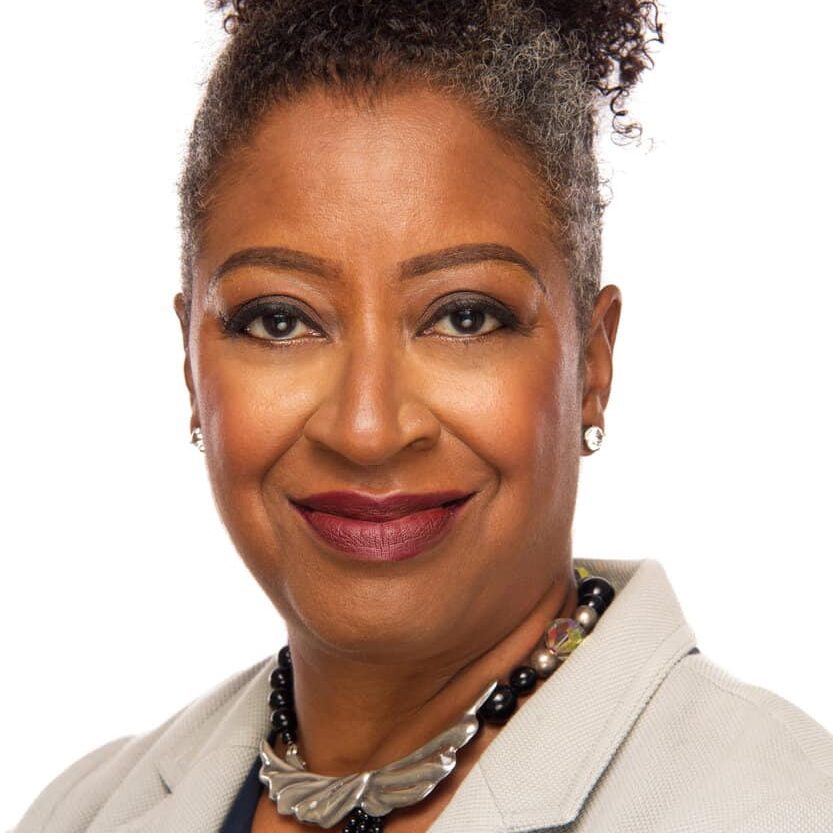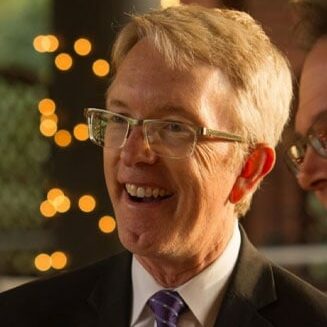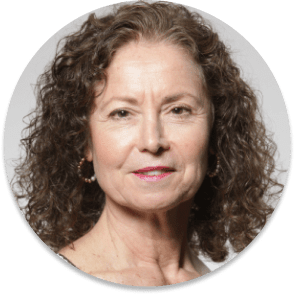Chicago’s Dept. of Business Affairs & Consumer Protection Commissioner Rosa Escareno, Chief Small Business Officer Kenya Merritt, Clark McCain, and business owners at the 2019 Winter Artisans Pop-Up Market at Navy Pier curated and operated by Quad Communities Development Corp. Photo credit: KayeKaye Photography
Edition Two: Turning Point Stories
Introduction
As I continue to settle into my role at Coleman, I asked our program officers to organize grantee listening sessions. The purpose of these gatherings was to introduce myself to and immerse myself in Coleman’s grantee community. Over the past 10 weeks I have met 200 people across 100 organizations. Our grantees told us we are good partners. They said, often we are the first funder who took a risk on their idea. We have built and supported fields of practice. And we have supported collaborations between peers. My heart filled with pride every time a grantee shared more.
We are sharing turning point stories in the second edition of our Impact Report Series. These are stories that give you insight into our three issue areas- cancer care, disability services, and entrepreneurship. These short articles spotlight an “aha moment” and illuminate the ‘why’ behind what we do. We focused on the moments or events that brought us profound clarity as grantmakers, and that led Coleman to make a change. While the story details are specific to our program areas, the lessons learned are universal. Enjoy!
–Shelley
Share On:
CANCER CARE

A National Report Creates Momentum for Supportive Oncology
By: Rosa Berardi
For decades, the Coleman Foundation funded cancer research, treatment, and care. We frequently asked how hospitals could collaborate to get cancer patients the best possible treatment, regardless of their zip code. Encouraging major cancer care programs in Chicago to work together was challenging given the City’s fragmented health system, diverse patient populations, concerns about revenue, and overall brand competition.
Rosa Berardi, Senior Program Officer, talks with renowned allergist/immunologist Anjuli Nayak, MD, at the opening of the Coleman Supportive Oncology Suite at the University of Chicago in 2016. The Coleman Foundation provided capital support to create a comfortable space for cancer patients and their families on the 6th floor of the Duchossols Center for Advanced Medicine.
Many cancer treatment providers in Chicago are long-time Foundation grantees. Their primary focus has been on the clinical aspects of cancer treatment and the delivery of curative care, which has improved greatly in recent decades.
About twenty years ago, driven by personal cancer experiences of several members of our board and staff, the Foundation began to look at how we could help patients and families cope with the non-clinical aspects of cancer, and changes in their quality of life post diagnosis and treatment. These non-clinical interventions are collectively referred to as “supportive oncology,” which includes psychological, social, and emotional supports, as well as care for physical concerns that arise during and after treatment. We found a scarcity of these services available, a lack of connection between supportive services providers and clinical cancer care providers, and minimal evidence-based research making the case for insurance payers to cover the cost of supportive oncology.
For two decades, we funded small cancer support nonprofits that mostly served local communities, and we struggled to connect them with our hospital grantees. Then, in 2013, the Institute of Medicine (IOM) published the report “Delivering High-Quality Cancer Care: Charting a New Course for a System in Crisis,” increasing national attention on supportive oncology and intensifying interest from cancer providers at all levels. “Supportive Care Screenings” and “Access to Supportive Services” became boxes that major cancer providers needed to check in order to obtain important accreditation for their services.
Bringing Chicago Area Cancer Providers Together
DEVELOPMENTAL DISABILITIES

Developmental Disability Organizations Find Better Solutions Together
By: Clark A. McCain
As I reflect upon our disabilities funding efforts at The Coleman Foundation, I recall something said by Susan Kaufman, CEO of Orchard Village, a member of the Intersect for Ability network: “If funders truly want their dollars to go toward a bigger impact in the work that they do, then bringing people together, as happened with the Coleman Foundation, is the best way to do it.”
A little more than ten years ago, as the appearance of autism was increasing substantially, the Foundation began receiving inquiries relating to it from prospective grantees. Although we fund organizations that serve individuals with intellectual and development disabilities, the field of autism was very new to us at the time. Fortunately, we had relationships with grantees who could educate us.

I reached out to both long-time and recent grantees, inviting them to attend a meeting to help us understand what was happening in the field relating to autism. Representatives from ten organizations joined us, providing a brief summary of the programs they offered for individuals with autism and sharing what they felt was important in this work.
After that meeting, my colleagues and I better understood the unique challenges faced by organizations serving those with autism as well some of the specific opportunities that we could fund. There was a moment when we broke for lunch and the organizations started talking, not just about autism but about all the other aspects of their work. They were all sharing the same challenges, the same obstacles, the same ideas and opportunities – topics ranging far beyond what we asked them to come and discuss.
Immeasurable Outcomes You Can’t Purchase
I was in the back of the room listening to all of this and I asked a colleague to come over. I said, ‘Listen to this! They are all experiencing the same types of things. They are all trying to solve the same problems. We need to find a way to take advantage of this, to help them come together and do their work not as an individual organization but as a collective, learning from one another and benefiting from the shared wisdom across all their organizations.”
What was born on that day was the idea that ultimately led to the Intersect for Ability Network, an informal association of fifteen nonprofits that serve individuals with intellectual and developmental disabilities. Over the past ten years we have made over 40 awards in support of Network activities and its members, totaling more than $4.5 million. This funding has enabled the members of the network to co-develop and pilot new practices, to learn together and face common challenges.

Members of the Intersect for Ability Network Council show off three Telly Awards won by the Network in 2013 for videos promoting its programs.
To close, I’ll return to Susan, who has served as Chair of the network, and who sums it up well: “We’ve developed such a sense of trust among ourselves as professionals, and as human beings, that we can reveal, we can ask questions, we can divulge challenges that we’re having and that’s really limitless,” remarks Kauffman. “That type of outcome is immeasurable and you really couldn’t purchase that.”
ENTREPRENEURSHIP

Our Pivot to Community-Based Entrepreneurship Education
By: Clark A. McCain
After making a critical contribution over nearly forty years to establishing the field of entrepreneurship in higher education, The Coleman Foundation’s focus began to shift closer to our Chicago home beginning in 2017. It was at an academic workshop we realized that this transition was not only important, but possible.
For nearly forty years, The Coleman Foundation awarded more than $65 million to advance entrepreneurship education. We began this effort when college courses on entrepreneurship were not offered. We funded college professors to teach entrepreneurship, and encouraged collaboration and peer learning to support the advancement of entrepreneurship education as a legitimate discipline in academia.

In the last decade of our work in academia, we looked to extend entrepreneurship education so that students who did not study in schools of business were also given the chance to learn about entrepreneurship in the language of their own field of study. We funded non-business faculty to incorporate entrepreneurship education into the classes they taught.
“When we looked at the literature, it was obvious that most people who start businesses do not study business as a major,” said Dr. Joseph Roberts, Director of the Entrepreneurship Program at Webster University and former Coordinator of the Coleman Foundation Faculty Fellows Program. “They study English, fiction writing, photography- you name it.”
Entrepreneurship Education Improves with Practice

In 2017, we began to shift our grantmaking efforts towards funding Chicago organizations that provide entrepreneurship education to individuals living in low- and moderate-income neighborhoods. As the program officer who works with these organizations, I got to know their faculty and I wondered if they might benefit from participating in Experiential Classroom. So, we funded seven of them to attend Experiential Classroom XIX in the fall of 2018.
Not only did the group universally laud the workshop as a venue for meaningful personal development, but their contributions to Experiential Classroom were valuable for everyone. Two attendees, Jason Johnson, Director of the Center for Entrepreneurship and Innovation at the Chicago Urban League, and Loren Williams, Regional Director of Programs at Sunshine Enterprises, were asked to return the following year and present their own workshop as part of Experiential Classroom XX.
“Having the opportunity to connect with other educators with an academic background and having that fusion with the practitioners and the academics was an amazing experience,” Johnson said. “My staff was able to come back with new frameworks, new approaches to support business owners with things like Opportunity Recognition and ways to more effectively run their business.”

This experience confirmed to our staff and our board that our historical efforts to increase access and improve entrepreneurship education at the university level could be deeply impactful when applied to Chicago community-based business support organizations. In making this pivot, we have provided over $5.5 million in grants to business services organizations, most of whom provide education to entrepreneurs in Chicago’s neighborhoods on the South and West Sides, including Sunshine Enterprises, Women’s Business Development Center, and West Side Forward (formerly Bethel New Life).
“Coleman has been a key player in uprighting the (business services organization) ecosystem in Chicago,” said Joel Hamernick, Executive Director of Sunshine Enterprises. “We are a better organization, and the ecosystem is stronger, because of Coleman.”

Shelley Davis
President & CEO

Clark McCain
Senior Program Officer

Rosa Berardi
Senior Program Officer





